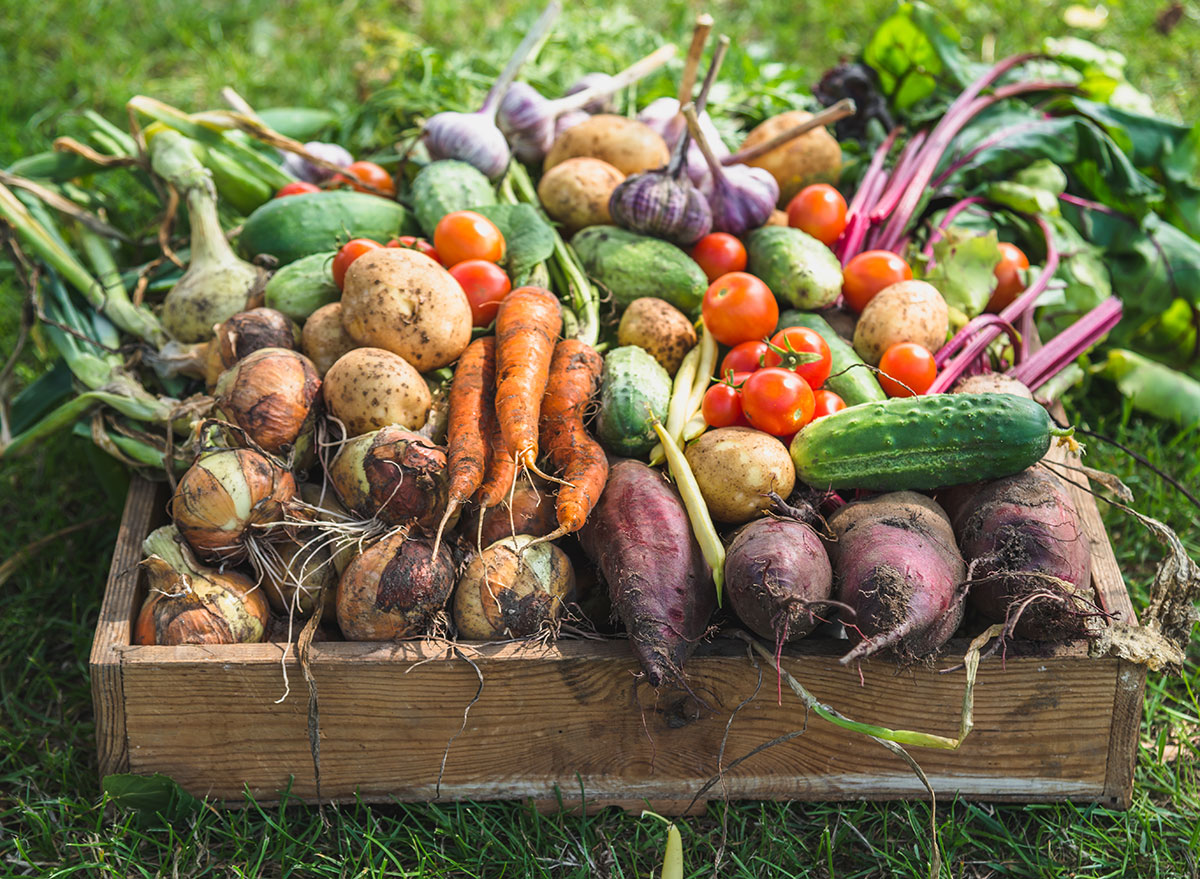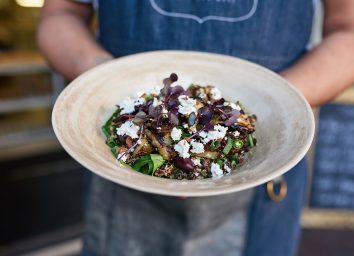Here's Why It's So Dangerous To Not Wash Your Produce, Study Shows

It's important to include fruits and vegetables in your diet each day, but there may be consequences if you don't thoroughly wash them. In fact, if you're buying local (which is encouraged to support farmers) you may also be at higher risk of foodborne illness, a new study says.
According to the study, which was led by the University of Houston Conrad H. Hilton College of Hotel and Restaurant Management and published in the Journal of Food Protection, very few small produce growers have food safety training. In fact, many of these small growers aren't required to follow federal food safety guidelines, the study reveals. (Related: The 7 Healthiest Foods to Eat Right Now.)
About 46% percent of all foodborne illnesses in the U.S. are caused by contaminated produce. The likelihood of fruits and vegetables containing a pathogen increases when high-risk practices are employed by small growers.
For example, allowing livestock to freely roam; using raw manure or a combination of manure and soil amendments; not cleaning farming tools and equipment properly; and not instilling adequate handwashing or toilet facilities near the farm or packing area are all things that could taint produce.
What exactly did this study reveal?
At a fruits and vegetable conference in Rosenberg, Texas, 70 small farmers were surveyed to assess their knowledge of food safety protocols—and the results were telling. More than 51% of respondents said their workers used bare hands to harvest produce, even though a whopping 39% don't provide handwashing facilities and 46% don't have bathrooms on site.
"There are definite gaps in their food safety knowledge, so it's critical that we reach these small growers with robust education to make them aware of the risks associated with these practices, as well as safer alternatives," Zahra Mohammad, lead author of the study and post-doctoral fellow, University of Houston, is quoted as saying by News Medical Life Sciences.
On the other hand, large and medium-sized farms are required to follow the Food Safety Modernization Act (FSMA), which sets food safety protocols in place at every stage of production.
This isn't to say you should stop buying from local farmers. In fact, Sujata Sirsat, an assistant professor at the Hilton College, told News Medical that very few food safety produce outbreaks are associated with farmers' markets. Currently, it's unclear if that's a matter of less contamination occurring at these markets—or if they're just harder to trace.
Here's what you can do to stay safe.
If you're buying local, make sure to scrub the outside of your produce with warm water and a brush to remove any excess dirt, pathogens, or pesticide residue that could be lurking on the skin. Also, boiling, roasting, or sautéing vegetables could potentially kill off some bacteria, viruses, and parasites. Still, that's not a guarantee.
"Stopping foodborne illness at the farm is the key, and that's why this study is important," Sirsat said. "If you have pathogens internalized into the product, it doesn't matter if you wash, rinse, and sanitize once you get it home. It may be too late."
For more tips, be sure to check out The FDA Just Released These 6 New Food Safety Tips.








